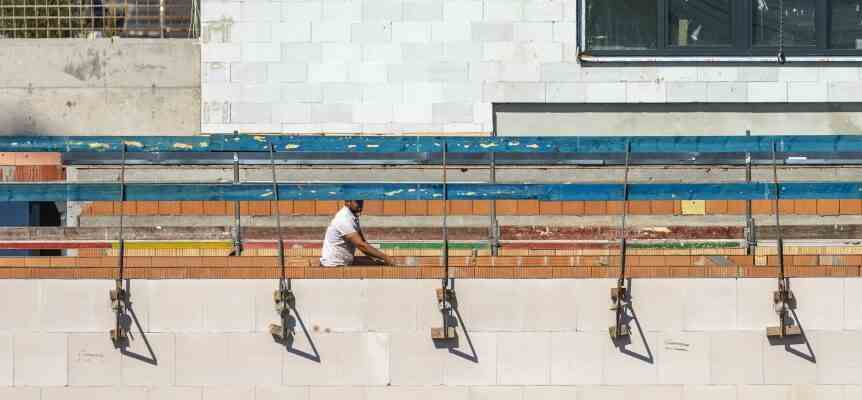The situation for Rolf Buch is a little paradoxical: Actually, the boss of Vonovia, Europe’s largest landlord, could be satisfied. Practically all of the group’s almost 550,000 apartments are occupied, the vacancy rate is lower than ever, and at the same time rents have risen by more than three percent, he can report. The operating result has increased by a whopping 35 percent in the first nine months, also thanks to the takeover of the rival Deutsche Wohnen. And this deal will bring even more savings in the coming years than initially calculated.
Nevertheless, Buch’s mood is subdued. The big apartment party seems to be over. Rapidly rising interest rates and construction costs, the growing uncertainty on the real estate market and possibly soon masses of tenants in payment difficulties – the prospects are not exactly pleasing. Nevertheless, Buch intends to at least deliver stable results at this year’s level in the coming year. And maybe he has to: Over the course of this complicated year, the Vonovia share in the Dax has already lost around half its value, and the group is valued on the stock exchange at less than 17 billion euros – much less than the real estate minus the debt should actually be worth. If possible, the value should not drop any further.
So Buch wants to save, especially in construction: Half a billion euros less is to flow into new construction and renovations at Vonovia in the coming year, only 850 million euros instead of around 1.4 billion recently. And with that, Buch reveals the whole dilemma that not only Vonovia, but the entire German real estate market is facing right now: because both are extremely scarce and expensive right now, capital and apartments. And it is likely to become even more difficult to keep up with the supply of the growing demand. Buch therefore considers the 400,000 new units that the federal government had originally planned to be too low.
“We need the help of politicians”
And even that is unlikely to be achievable in the coming years. The numbers that came from the construction industry indicated this: Incoming orders there are practically collapsing. Fewer investments and higher construction prices – inflation in construction has been in the double-digit percentage range since the middle of last year – are likely to exacerbate the housing shortage drastically in the coming years. After all, not only is less invested, every euro also builds fewer square meters.
“We need the help of politicians,” says Buch. If affordable housing is to be built, subsidies would have to be increased significantly and construction costs reduced. For example, by demanding less strict standards. But it doesn’t look like either of those things: From next year, Economics Minister Robert Habeck (Greens) wants the majority of the funding to no longer flow into the new building, but into the climate-friendly renovation of the existing building – in such a way that if possible many benefit, but there is less money from the state for each individual project. At the same time they will Requirements for new buildings tightenedevery new building must then at least meet the Efficiency House 55 standard.
The bottom line is that the housing industry would have to invest around 150 billion euros a year in new construction and modernization in order to achieve all goals, but at the same time it should keep rents affordable, says Buch. “It’s a calculation that won’t add up.” However, Vonovia will stick to its own plans for the renovations – although you will also benefit from the lead that you have gained in recent years.

